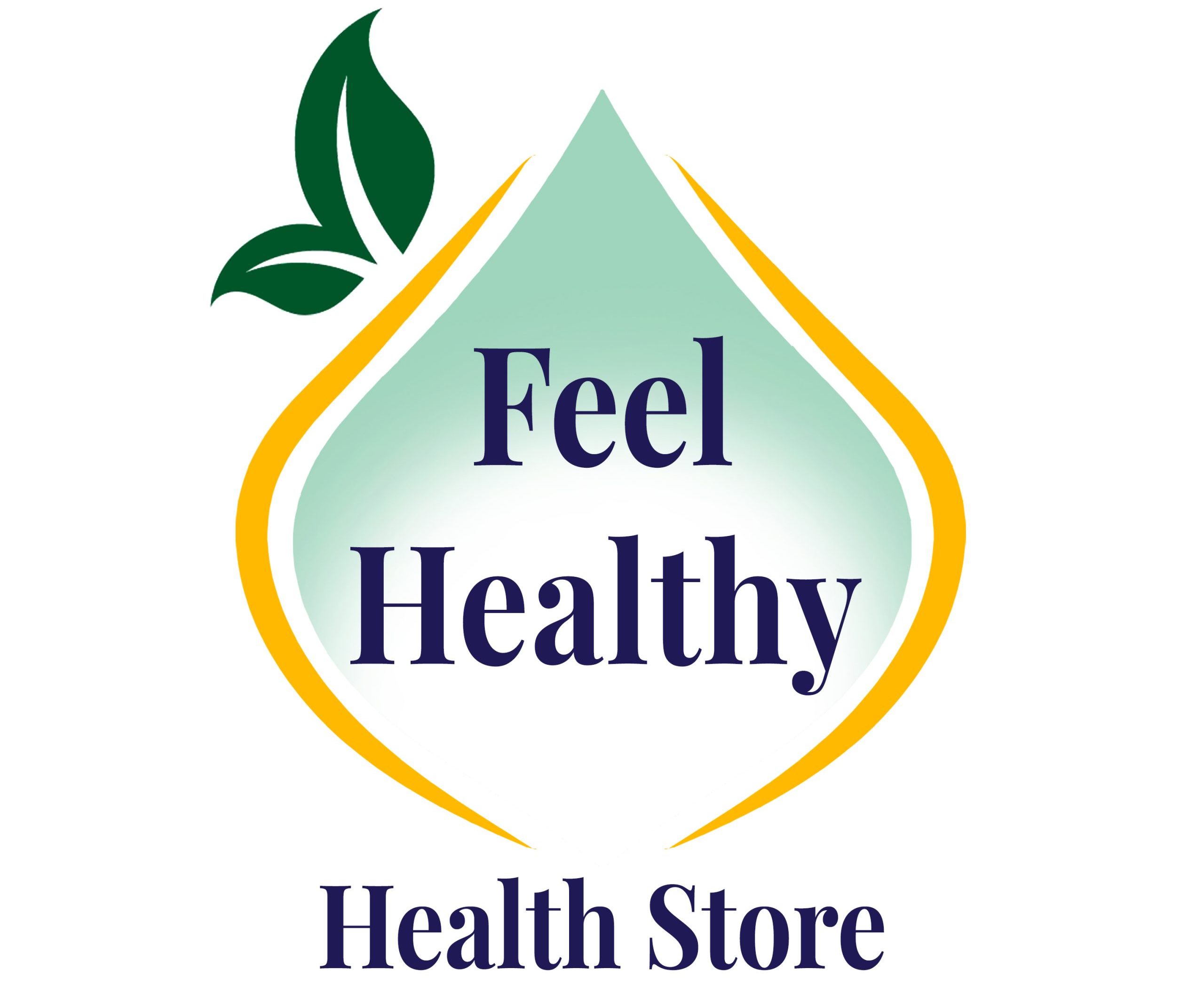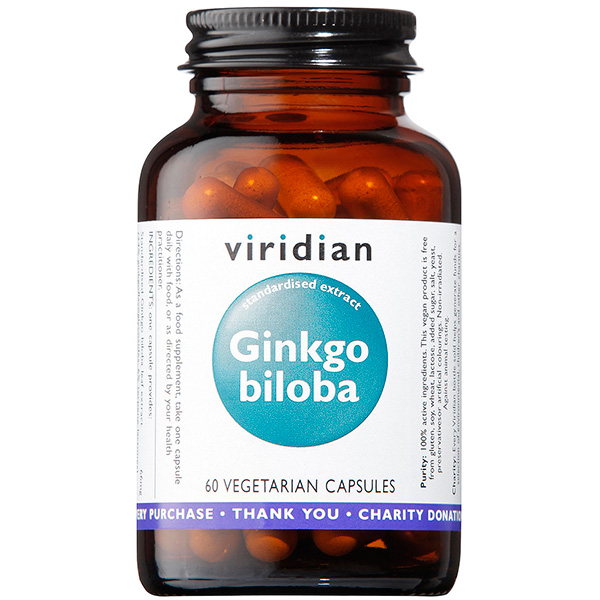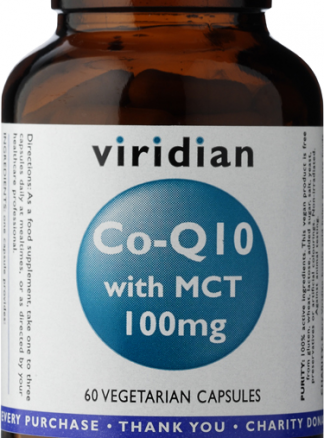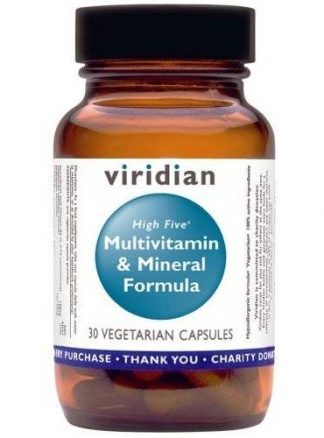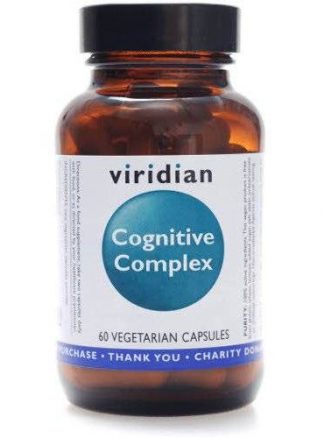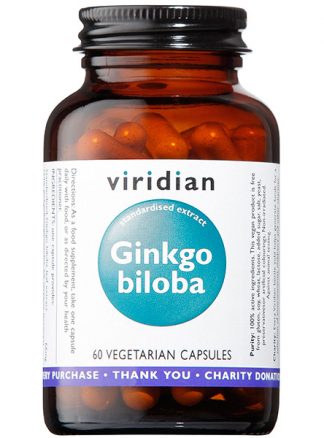Description
Viridian Ginkgo Biloba Leaf 60
Vegan, Kosher, Veg Caps
Plant extract in whole plant base.
Directions: As a food supplement, take one to three capsules daily with food, or as directed by your healthcare professional.
One vegetarian capsule provides:
| Ingredient | Weight | %EC NRV |
| Standardised Ginkgo biloba leaf extract | 66mg | |
| (24% ginkgoflavoglycosides, 6% terpene lactones) Equivalent to 3300mg of whole leaf | ||
| in a base of alfalfa, spirulina and bilberry |
Viridian Ginkgo Biloba Leaf
- CIRCULATORY / VASCULAR TONIC
- MEMORY ENHANCEMENT
- NERVE FUNCTION
- ANTI-DEPRESSANT
- ANTI-ALLERGIC
- SKIN PIGMENTATION
Traditional Chinese medicine prescribes ginkgo leaves for their ability to ‘benefit the brain’, and relieve the symptoms of asthma and coughs.
Dosage
The typical dose for standardised extracts, range from 40mg-80mg one to three times daily.
No restriction on duration of use
In cases of cerebrovascular insufficiency in can take at least two weeks before any benefit becomes apparent.
Organic tincture: 15-30 drops two to three times daily (half the amount for children under 12).
Potential applications
Alzheimer’s Disease, cerebral vascular insufficiency, poor memory, tinnitus / balance problems, sudden deafness, retinopathy / neuropathy, peripheral arterial insufficiency, stroke recovery, Raynaud’s disease,
impotence / sexual dysfunction, asthma, oxidative stress, visual improvements in those with poor retinal bloodmsupply, macular degeneration, allergies and eczema.
Ginkgo has shown effectiveness in congestive symptoms of PMS i.e. oedema, breast pain and tenderness.
Treatment of 240mg ginkgo extract / day has demonstrated significant improvements in Alzheimer disease patients.
Anti-depressant effects have been noted using doses up to 80mg three times daily.
Ginkgo extract (160mg per day) has been shown to significantly prevent acute mountain sickness for moderate altitude (5400m) and also decreased vasomotor disorders of the extremities.
Known contraindications
Not recommended during pregnancy or lactation.
Side effects are rare – symptoms occasionally noted include; gastro-intestinal discomfort, headache, and dizziness.
Interactions
Ginkgo is not recommended for patients receiving anti-coagulant or anti-platelet medication. E.g. warfarin and aspirin.
Studies assessing cardiovascular parameters of those receiving ginkgo extracts, revealed practically no change in heart rate, blood pressure, and blood lipids.
Useful links
Dementia – Flax / Hemp seed oil, vitamin E, multi-phytonutrient complex, rhodiola, alpha-lipoic acid/DMAE.
Diet and lifestyle: regular aerobic exercise, stress management, adequate sleep, antioxidant rich diet (selenium and vitamin E important) – organic fruits and vegetables, low saturated / hydrogenated fats, keep hydrated (1.5 litres water). Avoid heavy metals. Uncontaminated fish or preferably use Organic seed oils such as hemp / flax rich in unsaturated fatty acids. Low calorie, nutrient rich diets appear to maximise life extension. Mercury amalgam removal may prove beneficial.
Note: The Japanese are fond of eating ginkgo nuts after meals as a digestive aid. The ginkgo nuts can be mixed with rice, honey, water, and butter to produce a nutritious porridge.
